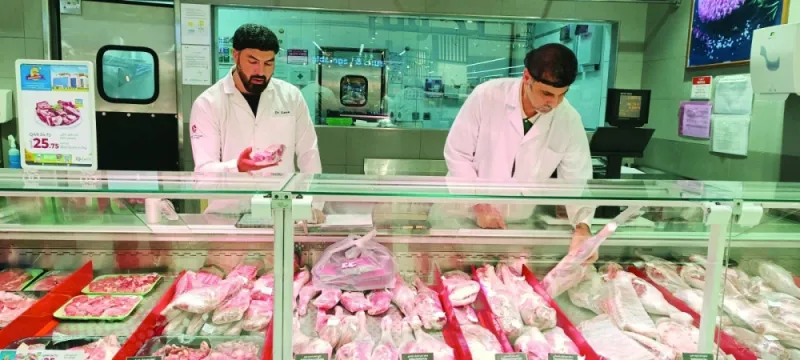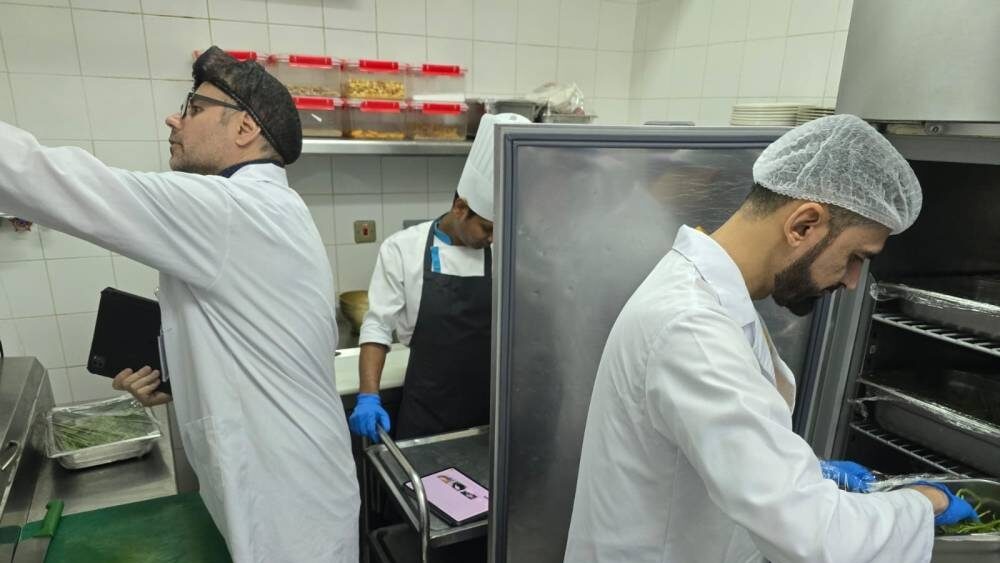Safeguarding Dining Excellence: Proactive Inspections at Al Wakra Municipality,In today’s fast paced world, we seldom stop to reflect on the sheer effort that ensures our meals are safe, hygienic, and responsibly prepared. Within the vibrant territory of Al Wakra Municipality in Qatar, a dedicated drive is underway to raise the bar on food safety standards, boost consumer confidence, and foster an environment where dining out is not just a pleasure, but a guarantee of wellness too. This article gives a human centered, positive look at the inspection of food establishments conducted by the municipality: why it matters, how it works, who it helps, and where the journey is heading.
Strengthening Public Health Through Routine Inspections
At the core of Al Wakra Municipality’s mission is protecting public health, one food outlet at a time. Regular inspection campaigns target food establishments, markets and slaughterhouses to make sure all operations stay within the regulations. In recent campaigns, the municipality’s Health Control Section carried out thousands of inspections aimed at outlets handling food. These large numbers reflect a consistent commitment and signal to consumers and businesses alike that safety is treated as a daily responsibility.
Why These Inspections Matter
When we dine out or pick up groceries, we often assume everything is fine. But ensuring everything is fine involves many hidden checks and balances.
Foodborne illness prevention is one of the main purposes of inspections. Regular checks help intercept risks before they become public hazards. They also uplift standards across the industry. Familiarity with inspections encourages food establishments to raise hygiene, sourcing, storage and handling practices.
These inspections also build consumer confidence. Knowing there’s a system in place makes people feel safer choosing to eat out, which feeds into a better community lifestyle. Through enforcement, the municipality ensures that the law isn’t just on paper but actively lived by businesses. In essence, these inspections are a bridge between the unseen world of regulatory hygiene and the visible world of meals, menus and smiling diners.

Key Metrics and Findings from Recent Campaigns
Beyond intention, real numbers tell the story of action and impact. Here are some of the measurable outcomes of the inspection drives.
In one weeklong campaign, more than 1,500 inspections were conducted across various food outlets in Al Wakra. Inspectors destroyed unfit food items weighing over 100 kilograms and carried out veterinary checks on thousands of kilograms of fish at the Al Wakra Fish Market.
In another campaign, over 1,700 field inspection tours were conducted, resulting in the destruction of dozens of kilograms of unhygienic food items. Thousands of kilograms of fish were examined to ensure freshness and safety.
These figures reveal two things. First, the inspections are large scale and second, while violations exist, they are relatively few compared to all inspections. That suggests overall high compliance and encouraging outcomes.
The Human Element: Inspectors, Business Owners and Consumers
Inspectors: The Ground Level Heroes
Behind every inspection campaign is a team of dedicated professionals including health control officers, food safety inspectors, and veterinarians. Their work often involves early mornings, market visits, behind the scenes sampling, and managerial follow ups. Their efforts are both technically rigorous and deeply human: assessing risk, advising businesses, and sometimes enforcing closure when needed.
Their role underscores that food safety is not just rule checking, but people supporting people. Inspectors guide food truck owners on handling practices, inform restaurant managers about new labelling requirements, and reassure market traders that veterinary inspections protect both business and customers.
Business Owners: Partners in Progress
Food service businesses in Al Wakra are not adversaries in this process; they are partners. The inspection campaigns serve as reminders rather than threats. For owners who welcome inspections and act on feedback, the benefits include better reputation, fewer disruptions, and more confident customers.
When violations are recorded, the goal is not punitive but corrective. Some infractions are resolved through reconciliation and education rather than immediate closure. This shows that Al Wakra Municipality aims to guide rather than penalize, promoting long term improvement over short term punishment.
Consumers: The Silent Beneficiaries
As a diner or shopper in Al Wakra, you are the ultimate stakeholder. Because of the municipality’s efforts, you can trust that the meat, fish or produce you buy was inspected. Restaurants and food shops are more likely to maintain cleanliness, proper storage and safe sourcing. You gain peace of mind knowing someone has checked the behind the scenes. In effect, these inspections make your everyday meal a little brighter, safer and more reliable.
Strategic Approach: What Makes Al Wakra’s Inspection Drive Stand Out
Several features of Al Wakra Municipality’s approach contribute to its strength.
The municipality conducts inspections with high frequency and wide scope. Thousands of field tours across outlets, markets and slaughterhouses ensure broad coverage and regular oversight.
Inspections are anchored in strong legal frameworks, ensuring that violations are dealt with appropriately. Specialized teams focus on specific areas like fish markets, slaughterhouses and food processing units. Veterinary checks at markets further strengthen the food safety chain.
Another hallmark is awareness and partner engagement. Campaigns often include awareness posters and educational programs to help food business workers understand hygiene, handling and compliance requirements.
Transparency and accountability are also central. The municipality regularly shares statistics about inspections, quantities of disposed food items, and types of violations. This openness builds trust and encourages businesses to maintain good practices.
Challenges and Areas for Ongoing Improvement
While the inspection campaigns are commendable, no system is without challenges. Recognizing them helps maintain continuous improvement.
The first challenge is the sheer scale and diversity of food establishments in Al Wakra. From large restaurants to small food stalls, ensuring consistent compliance is an ongoing task.
Rapid growth presents another challenge. With new establishments, cuisines, and delivery models emerging, inspection strategies must evolve to keep pace.
Awareness and training also remain critical. Smaller businesses sometimes lack full understanding of regulations. Expanding educational programs could help bridge this gap.
Consumer awareness can be enhanced too. While inspections happen quietly, many consumers remain unaware of the municipality’s efforts. Public communication and visible certifications can help build stronger confidence.
Finally, regular follow up is essential. Inspections capture a snapshot in time, but sustained compliance requires continued vigilance and periodic checks.

Success Stories and Positive Signals
The inspection initiatives have already shown remarkable success. Thousands of kilograms of fish are checked weekly, preventing unsafe food from reaching the public.
The relatively small number of violations recorded amid thousands of inspections demonstrates that most businesses are compliant and responsible. Campaigns combining inspection with awareness have proven especially effective, transforming the culture from one of enforcement to one of education and self regulation.
Reports of unsafe meat or food items being disposed of reflect that the system actively enforces standards, ensuring that only safe and high quality food reaches consumers. These successes underline that Al Wakra’s approach is not only about spotting problems but also about fostering a culture of excellence in food safety.
How Food Establishments Can Prepare and Thrive
For restaurant owners, café managers, and food stall operators, the inspection drive offers both challenge and opportunity.
- Know the regulations and understand the municipality’s key requirements.
- Keep documentation updated, including cleaning logs, refrigeration temperatures, and supplier details.
- Train all staff in hygiene, safe food handling and cross contamination prevention.
- Respond quickly to feedback or violations to demonstrate commitment to improvement.
- Display cleanliness and certification details to earn customer trust.
- Stay informed about new rules, delivery systems and hygiene technologies.
Compliance should be seen as a strength, not a burden. Establishments that prioritize food safety gain loyalty, reputation, and business growth.
Consumer Tips and How to Engage
As a consumer, you also play an important role in upholding food safety.
Look for clean kitchens, covered food, and staff wearing proper attire like gloves and hair nets. Don’t hesitate to ask questions if something appears unhygienic. Support restaurants and shops that clearly follow cleanliness standards.
If you notice unhygienic conditions, report them to the municipal authorities. Public feedback helps the system function better. And finally, appreciate the unseen effort. Every time you enjoy a safe, delicious meal, you benefit from an entire network of inspectors and responsible businesses working to protect your health.
Looking Ahead: The Future of Food Safety in Al Wakra
The future of food safety in Al Wakra Municipality looks bright. The introduction of digital tracking systems could make inspection results more transparent and allow authorities to respond quickly to high risk areas.
Visible certification grades for restaurants may also be introduced, giving consumers more clarity and businesses more incentive to maintain top standards. Expanding inspections beyond restaurants to cover delivery kitchens and imported foods will further strengthen the safety net.
Collaboration between the municipality, business owners, and consumers will remain crucial. As community awareness grows, food safety will become not just a rule, but a shared value.
Conclusion
The inspection of food establishments by Al Wakra Municipality is far more than a regulatory duty. It is a commitment to public health, consumer trust, and community well being. With thousands of inspections, rigorous monitoring, and ongoing education, the municipality has created a model of proactive food safety management.
Every clean kitchen, every fresh fish counter, and every safe meal served in Al Wakra stands as proof of a larger effort driven by responsibility and care. The message is clear and inspiring: food safety is everyone’s business, and together, we can make every meal safe, satisfying, and full of trust.
Do follow Gulf Magazine on Instagram.



